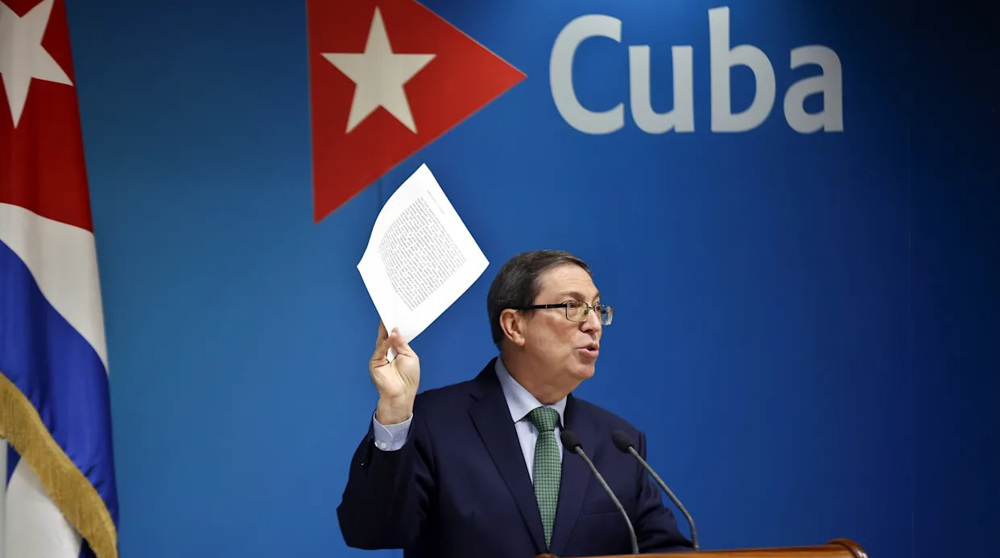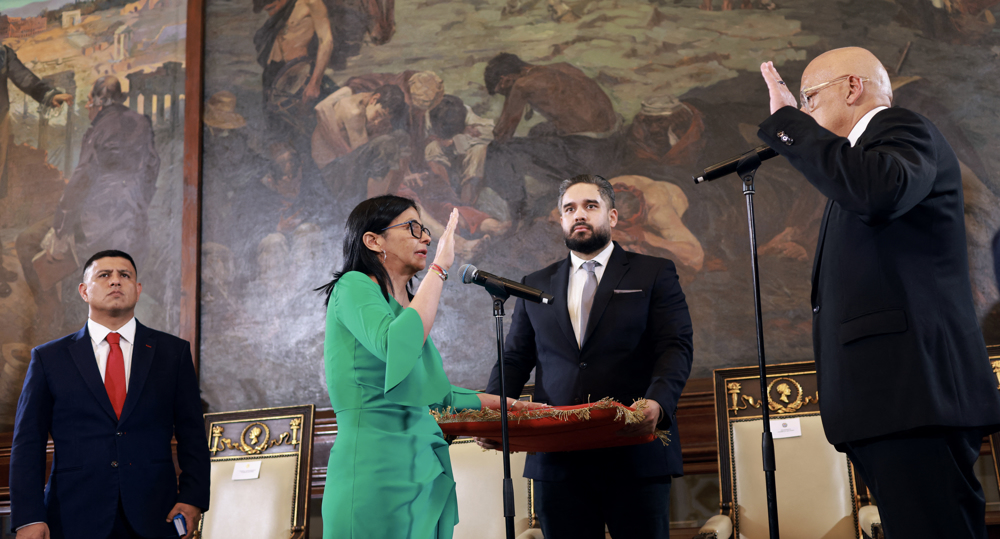Bolivia interim president, protesters reach ‘pacification’ deal
Interim Bolivian President Jeanine Añez has agreed to withdraw the military from protest areas as part of a preliminary “pacification” deal struck with protest leaders.
The president in a 12-point pact early on Sunday also agreed to repeal a law giving armed forces broad discretion in the use of force against demonstrators.
“If there’s no need for the army to be in the streets, it won’t be,” Añez said in comments broadcast on state TV at the end of talks with the protest leaders at the presidential palace. “It’s due to extreme necessity that the army was deployed. It wasn’t to abuse anyone or to show power.”
As part of the deal, military officers will remain on guard at strategic state companies to prevent vandalism. The deal also commits the caretaker administration to protecting lawmakers from persecution and providing compensation for family members of the people killed in clashes and freeing those arrested during the protests.
In exchange for the concessions, over a dozen leaders of indigenous groups who took part in the talks agreed to order their followers to end their demonstrations.
Anti-government protesters lifted road blockades ahead of the weekend talks.
The negotiations will resume later on Sunday to finalize a bill that Añez said she would send to congress for passage later in the day.
The Sunday talks will for the first time include Andronico Rodriguez, an influential leader of coca growers who called for protests after Añez took the presidency.
Juan Carlos Huarachi, the head of Bolivia’s largest federation of labor unions, who acted as a mediator in the talks, said peace would soon prevail in Bolivia.
At least 30 people have been killed in clashes between protesters and security forces since the October 20 election that Morales won. Most have died since November 10, when Morales ultimately resigned under pressure from Bolivia’s military and his political opponents, who claimed there had been fraud in the electoral process.
Morales’ forced resignation came only a week after he canceled a massive joint lithium project with a German company.
RT also reported that the US-based Tesla company, which uses lithium batteries for its electric cars, saw its stocks jump after Morales’ departure.
Estimated to be at around 900 million tones, Bolivia’s lithium reserves are believed to contain 70 percent of the world’s known lithium, representing a lucrative market for international investors and competitors.
The mineral is essential in the manufacturing of long-lasting batteries and electric cars.
VIDEO | Paris protesters call for release of Palestinian abductees
VIDEO | Protesters in Baghdad stand with Iran, reject foreign violence
VIDEO | Iran's Leader: US must be held accountable for orchestrating violence in Iran
UAE’s state oil company weighs major investment in Venezuela’s gas: Report
Trump launches sweeping clemency offensive, pardoning allies, donors, repeat fraudsters
Iraqi army assumes full control of Ain al-Asad airbase after complete US withdrawal
VIDEO | Trump main culprit of acts of terror in Iran
Iran restores SMS access, eases curbs on domestic messengers











 This makes it easy to access the Press TV website
This makes it easy to access the Press TV website